Related Research Articles
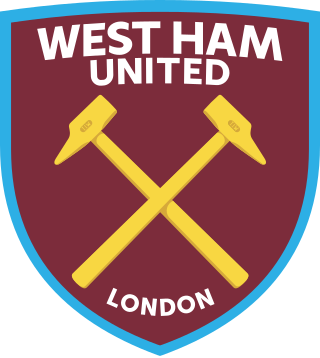
West Ham United Football Club is an English professional football club that plays its home matches in Stratford, East London. The club competes in the Premier League, the top tier of English football. The club plays at the London Stadium, having moved from their former home, the Boleyn Ground, in 2016.

Clapton Football Club is a football club based in Plaistow, East London. The club are currently members of the Eastern Counties League Division One South and play at the Terence McMillan Stadium in Plaistow following their 2019 eviction from their long-term home, the Old Spotted Dog Ground in Forest Gate.
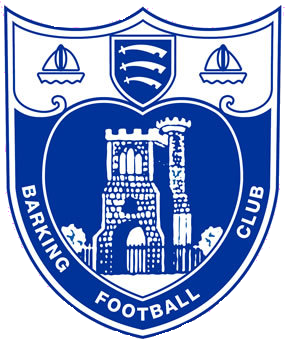
Barking Football Club is a football club based in Barking, Greater London, England. They are currently members of the Essex Senior League and play at Mayesbrook Park in Dagenham.

Cowes Sports Football Club is a football club based in Cowes, Isle of Wight, England. They play in the Wessex League Premier Division. The club is affiliated to the Isle of Wight Football Association, which is a division of the Hampshire Football Association.
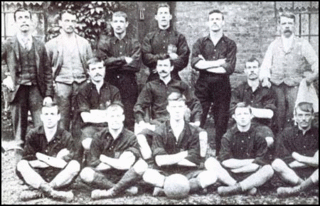
The 1895–96 season was the inaugural season of Thames Ironworks, the club that would later become West Ham United. The club was founded by Dave Taylor and Arnold Hills in 1895 as the works team of the Thames Ironworks and Shipbuilding Company. Taylor was a foreman at the Ironworks and a local football referee. Thanks to Ironworks owner Arnold Hills' financial backing, he was able to announce on 29 June 1895 the following in the company's weekly journal:

Old Castle Swifts Football Club, the first professional football club in Essex, was formed by Scottish shipowner Donald Currie in September 1892 as Castle Swifts Football Club. The club's first home ground, located in West Ham, was named Dunottar Park, after the Castle Line company's ship Dunottar Castle. In 1894, Old Castle Swifts merged with Old St Luke's and was renamed. The club was wound up the following season. Its demise saw several players join the newly founded Thames Ironworks, the club that was later reformed as West Ham United.
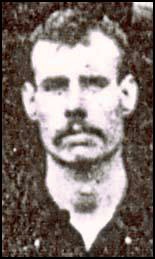
George Sage was an English footballer who played as an outside or inside forward. He was amongst the first players of Thames Ironworks, the club that would later be reformed as West Ham United.
David Furnell was an English footballer who played as a goalkeeper.

The 1896–97 season was Thames Ironworks' second season after the club's formation in 1895.
Thames Ironworks Football Club, the club that later became West Ham United, was founded by Thames Ironworks and Shipbuilding Co. Ltd owner Arnold Hills and foreman Dave Taylor in 1895. Thames Ironworks took over the tenancy of The Old Castle Swifts' Hermit Road ground in Canning Town until their eventual eviction in October 1896. They would briefly play at Browning Road in East Ham, before moving to the Memorial Grounds, a stadium which was situated close to where West Ham station now stands. The ground was built at Arnold Hills's own expense, costing £20,000.

Royal Ordnance Factories Football Club were a football club from south east London, England, that existed in the late 19th century.
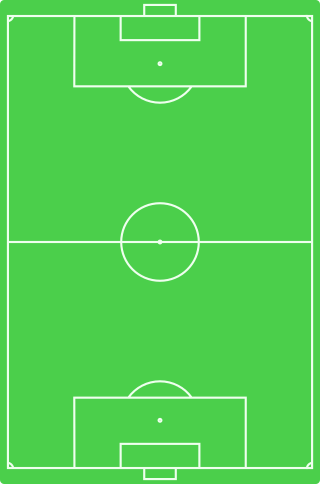
The 1897–98 season was Thames Ironworks' third season after the club's formation in 1895.

The 1898–99 season was Thames Ironworks' fourth season after the club's formation in 1895.
Hermit Road was a stadium located in Canning Town in London, England. It was the first home ground of football club Thames Ironworks, the works team of the Thames Ironworks and Shipbuilding Company. The club would later be reformed as West Ham United.
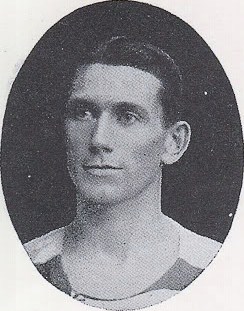
Billy Barnes was a professional footballer from West Ham, Essex. Originally debuting for Thames Ironworks, he moved to Sheffield United and scored the winning goal in the 1902 FA Cup final replay. Later on in his career he won two Southern Football League titles and took part in two Charity Shield matches including the first time it was held. Once his playing career was over, he went on to manage Athletic Bilbao in Spain.
Johnny Stewart was an English association footballer who played as a half back.
The 1900–01 season was English football club West Ham United’s inaugural season. The club had been founded in 1895 under the name of Thames Ironworks, before being wound up in June 1900 and resigning from the Southern League. On 5 July, West Ham United Football Club Company Limited was registered and the club took the Southern League place vacated by Thames Ironworks. They finished the season sixth in the Southern League Division One. The club also entered the FA Cup, reaching the intermediate round.
The South Essex League was a football league that was held in Essex and East London.
South West Ham Football Club was a football club based in Canning Town, England.
West Ham Garfield Football Club was a football club based in West Ham, England.
References
- 1 2 3 John Powles (2005). Iron in the Blood: Thames Ironworks FC, the Club That Became West Ham United. Tony Brown. pp. 1–7.
- ↑ "The English Cup. —Qualifying competition", The Morning Post, 2 November 1896, p. 2
- ↑ "1895-96 Thames Ironworks". West Ham United Football Programmes. Retrieved 5 October 2021.